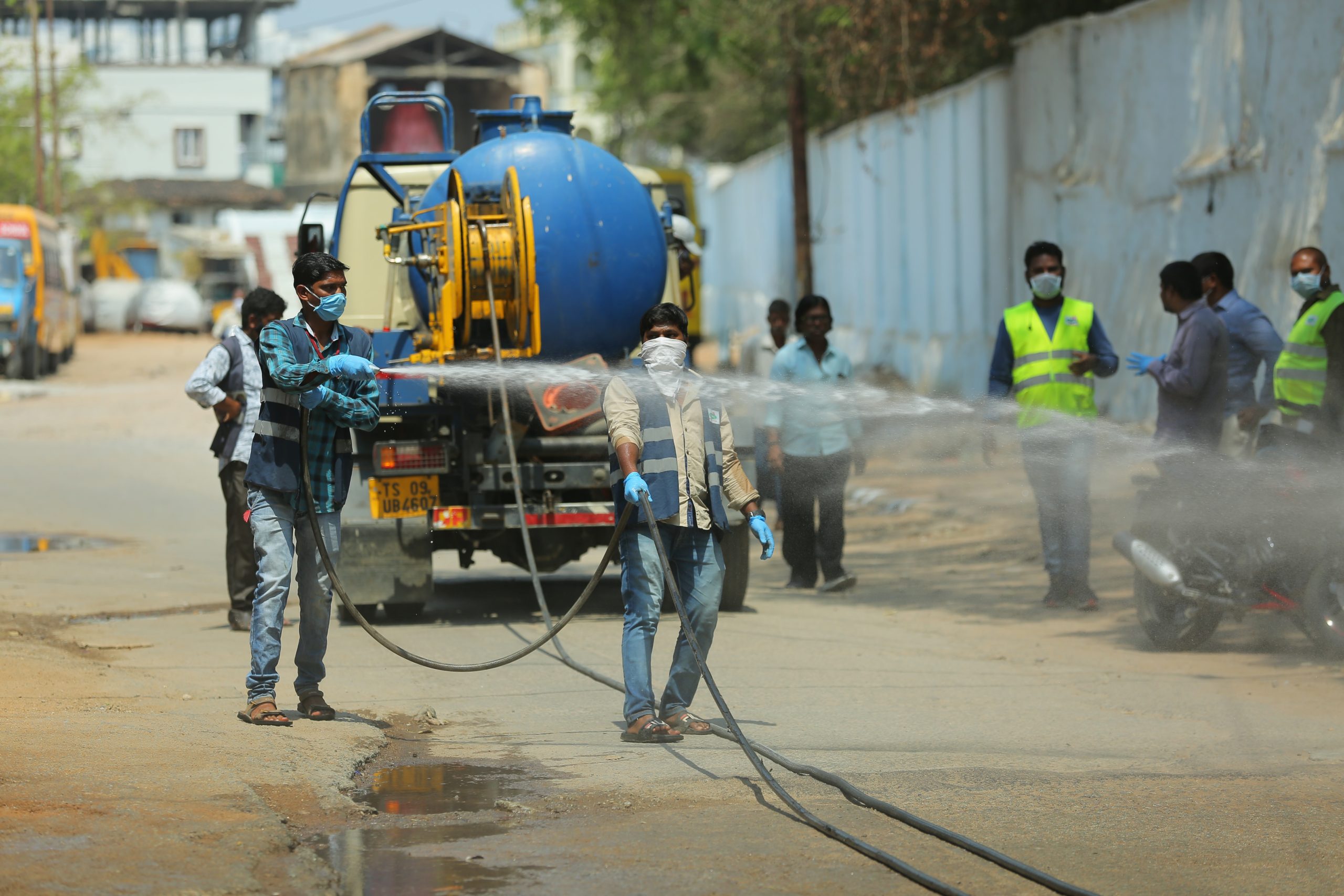Photo by Sujeeth Potla.
by Vanisree Ramanathan
As corona virus pandemic around the globe is wreaking havoc on public health, social life and economies the devastating impact of COVID-19 in the developing world need careful analysis. The post covid19 reconstruction of the society must be guided by strong principles to promote human security. Despite economic growth, human security challenges were prevalent in developing countries even before the COVID-19 pandemic. The threat to peace and security, minimal social protection, unregulated and unprotected informal sector, extreme poverty, weak institutions, ecosystem and environmental damage, biodiversity loss, natural and manmade disasters were at self-destruction levels of human civilizations. Times of crisis often reinstate unaddressed deep disparities and poor governance because resources are limited and people are alert, which stand as the roadblocks to the sustainable development.
As per the General Assembly resolution 66/290, “human security is an approach to assist Member States in identifying and addressing widespread and cross-cutting challenges to the survival, livelihood and dignity of their people.” It calls for “people-centred, comprehensive, context-specific and prevention-oriented responses that strengthen the protection and empowerment of all people.” The pandemic challenged multiple aspects of human security; economic security, health security, environmental security, personal security, community security, and food security. Pandemic challenges the traditional border security doctrine. When thousands of health care workers are succumbed to avoidable death, due to lack personal protection equipment, a security doctrine accentuating on large investment in advanced military equipment’s remain challenged
Along with peace and security, addressing deep social divisions, economic inequity, gender inequity, inherent ageism is the need of the hour in the post-Covid world. Any negligence towards it will lead to violence in the most vulnerable countries and cities. The public health crisis is fast becoming an economic and social crisis and a protection and human rights crisis rolled into one. The current situation is leading to the economic recession and social distress. Stigmatization, distress and hate speech has increased, and democratic political processes have delayed leaving avenues for conflict resolution to decline. New media had created more havoc to this distressing situation by misinformation and fake information fabricated through social media
Prevention remains the basic objective of human security, as it addresses the root causes of vulnerabilities, developing mechanisms to focus on emerging risks and emphasizes proactive responses. It aims to strengthen local capacities to build resilience, and promotes social solidarity and bestow respect for human rights and dignity. Providing medical supplies, supporting social protection and social security programmes, assisting returning migrants, and addressing the surge in violence against vulnerable groups are some of the examples of promoting human security. The systematic use of extrajudicial power by law enforcement officers, widespread stigma against the people who are infected by the virus, and subsequent violence, threat to the livelihood, increased crimes and suicidal rate also has been reported.
Amartya Sen’s idea of justice is more applicable in the rebuilding of the post- Covid world. According to him, justice is connected with the way people’s lives go, and not merely with the nature of the institutions surrounding them. It is necessary to assess the roles of institutions on the basis of how much inclusiveness is reflected in them. In his analysis human being are more than a ‘rational economic man’ as motivated mainly by self-interest. According to him even children have strong notions of fairness and acute aversion to manifest injustice. There is a strong perception of manifest injustice applies to all human beings and there are clearly remediable injustices around us which we want to eliminate. Thus, Sen asserts that Human Beings are as concerned with eliminating remediable injustice as they are with pursuing their own self-interest. Removing remediable injustice is the task in the post-Covid global world.
The framework of human security requires coordination, integration, promoting multi-stakeholder partnerships, decentralisation in promoting prevention and resilience. The human security theory presents an all-inclusive transdisciplinary response to the multidimensional causes and consequences of complex social security challenges. Human security theory is visualising an integrated action among a web of stakeholders ranging from UN systems, governments, private sector and civil society and local communities to ensure the long-lasting solutions for most challenging obstacles to development. The discourses on ‘2030 agenda for the Sustainable Development Goals’ have recognised the root causes and manifestations of challenges significantly vary across countries and communities.
The human security approach facilitates human actions that are based in local realities. Reconstruction of post covid19 society is an opportunity to address inherent inequity in the economic and social context, addressing the digital inequity, encouraging a greener economy and promoting and protecting the rights of all. Dealing with the digital divide was most glaring in our effort to rebuild the education systems with the massive reliance on digital technology. Digital equity is essential to ensure that people and communities are not left behind in our connected world. One of the positive impacts of the pandemic was reduced pollution due to the imposed lockdown. Rebuilding the post covid19 world is an opportunity to endorse a green economy by creating new jobs linked to the non-polluting and decarbonising economy. To achieve this short-term stimulus measures as well as long-term policy changes is crucial.
Covid19 related lockdown witnessed systematic use of violence by the law enforcement agents to administer lockdown. An active post Covid19 response must ensure the protection of human rights, civic space for disagreement and policy dialogue that promotes transparency. Instead of looking at immediate measures, International community should indulge in some alternative thinking, and identify resources that assist to stop the spread of the virus along with resources to prevent the economic collapse of developing countries by collaborating with partners who can work across systems and sectors and in contexts that are both complex and uncertain. Rebuilding of post covid19 society is an unprecedented humanitarian action and can only be achieved through Care, Compassion and Collaboration as the core principles to address this Global disaster.

